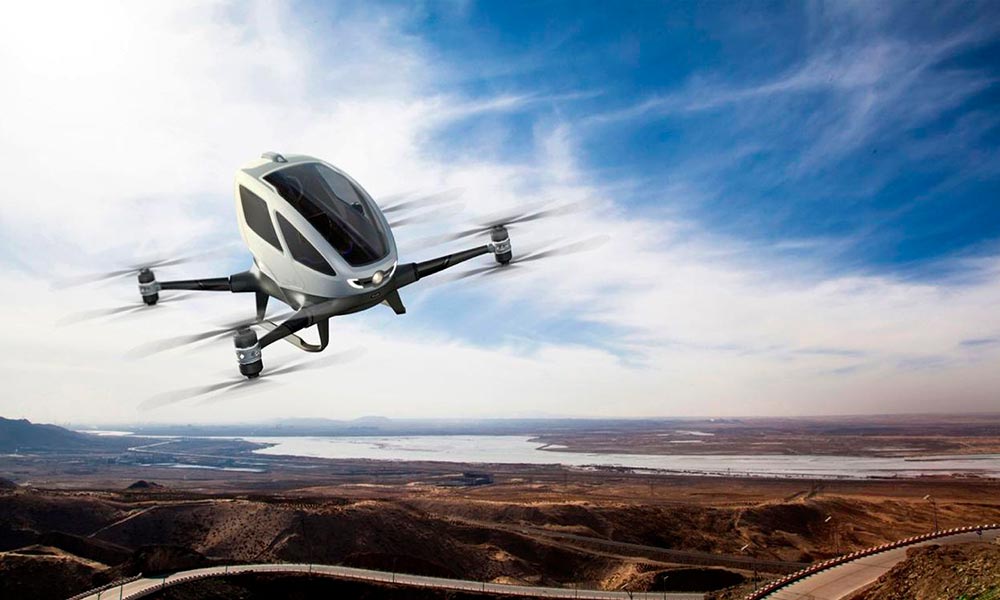Magazine all about Electric Cars
Electromobility and the fight against
climate change
When it is based on the substitution of fossil fuels for clean energies, with zero emissions of greenhouse gases, the electric car is in direct line with the Paris Agreement. The silent and decarbonised car is the hope of a world without smog, noise or gases that increase disease and global warming. The great transformation of the automotive industry was reflected by a representative of General Motors: “there will be more changes in the automotive sector in the next five or ten years than in the last fifty”.
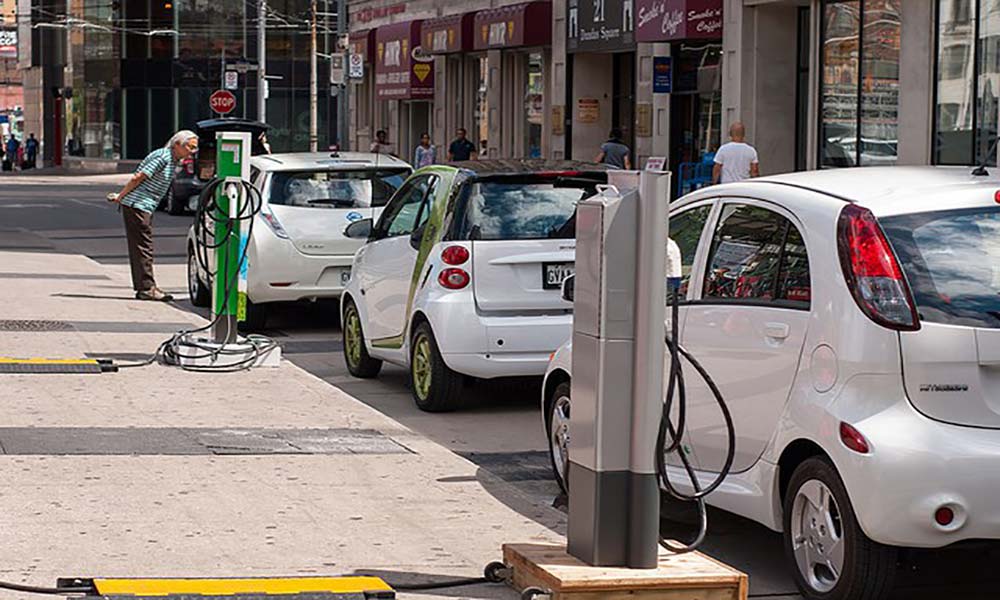
Source: EV Obsession
As more electric cars are added to the planet’s traffic, global warming will be mitigated, as will climate change, since GHG emissions are largely due to automobile traffic. The accumulator is one of the primary devices of an electric car. Almost all electric cars use lithium-ion batteries, due to their high efficiency.
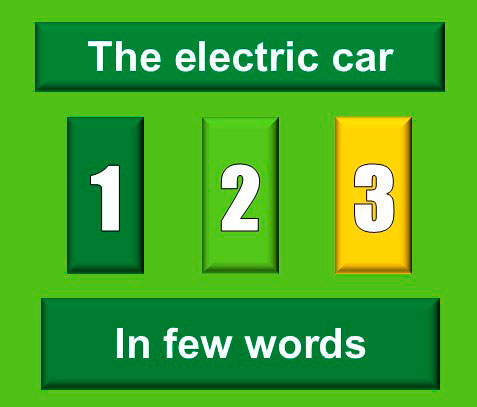

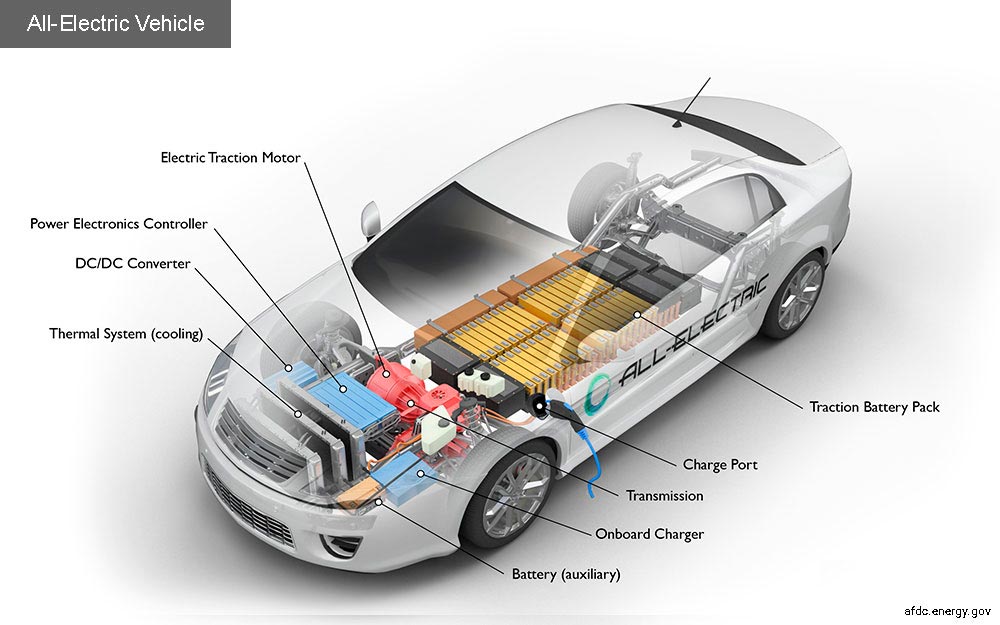
Source: afdc.energy.gov
The electric motor exceeds the gasoline engine
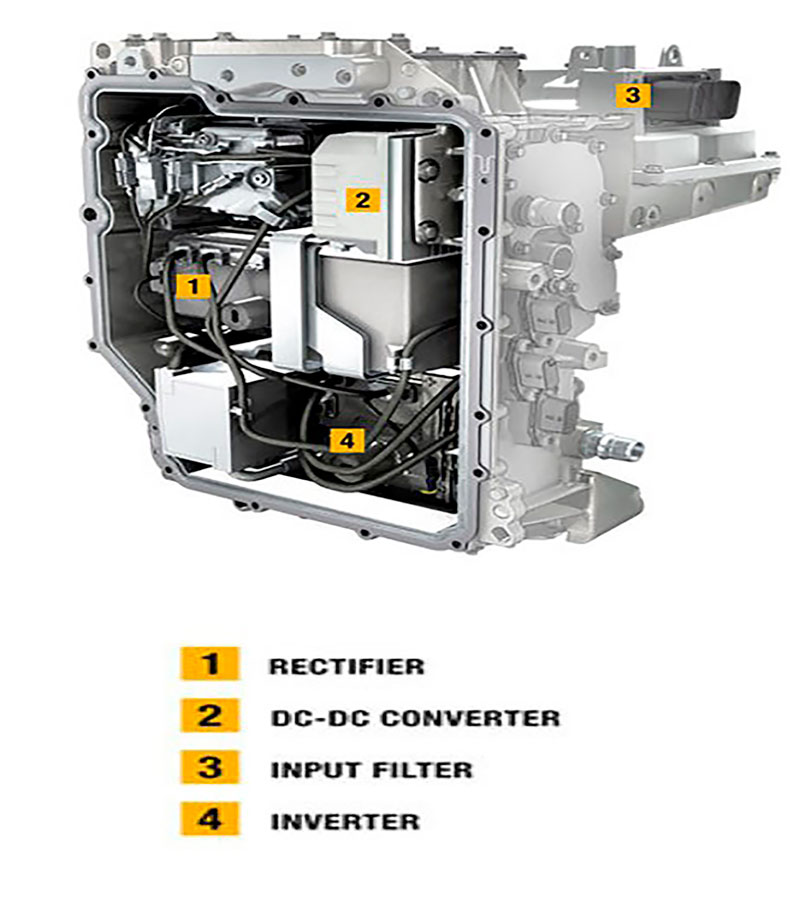
Source: corrienteelectrica.renault.es
An electric car basically consists of an electric motor, a controller and a battery. When the car is turned on, the current passes from the battery to the controller, in charge of transferring the electrical energy to the motor, which transforms it into mechanical energy to move the car. The controller manages the supplying power to the motor. The variable potentiometers are connected between the accelerator and the controller and tell you how much energy to deliver according to the pressure the driver gives the accelerator. When the pedal is released the energy requirement is zero and consequently the car stops. When the accelerator is pushed all the way in, it provides the maximum output to the car.
How a lithium ion battery works
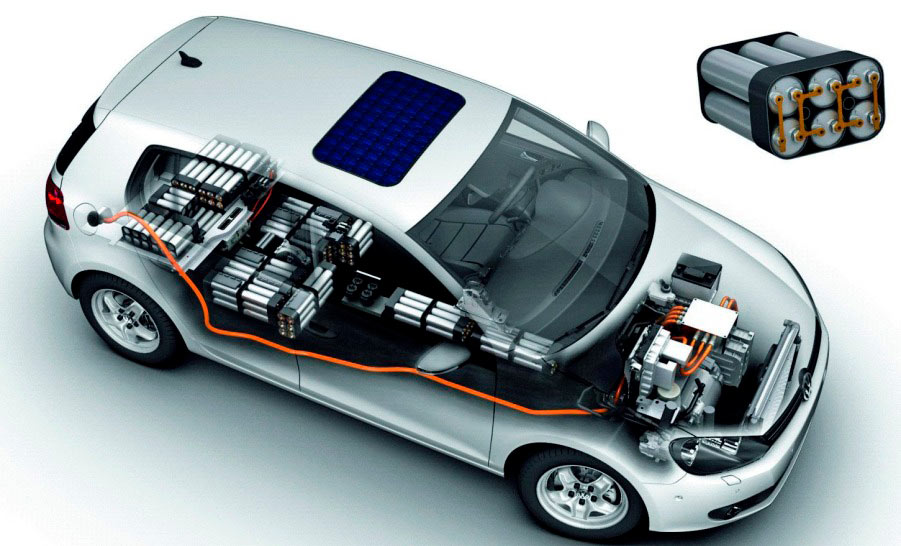
Source: auto-motor.at
The operation of the lithium-ion battery is based on reversible chemical reactions, through an exchange of ions and electrons between its poles, a phenomenon that allows the battery to charge or discharge. In the first case an electric current is generated capable of moving the electric motor and in turn the vehicle, while at the time of recharging, the ions and electrons return to their original situation from an input of external energy, as be the braking of the car.
Where the batteries of an electric car are located
Battery packs are located under the vehicle or in the trunk.
The battery is also used to power the windshield wipers, lights and other electrical outlets inside the car.
Apart from the engine and the operation, the plug-in car is quite similar to internal combustion cars, such as air conditioning, brakes, transmission systems and airbags.
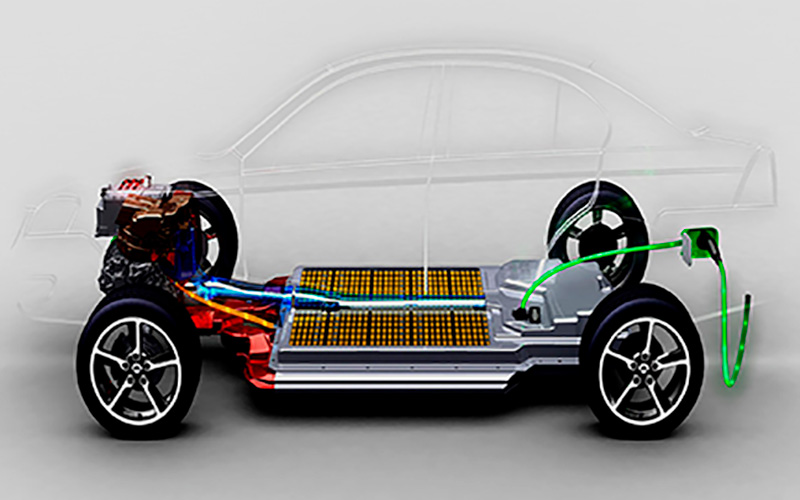
Source: pruebaderuta.com
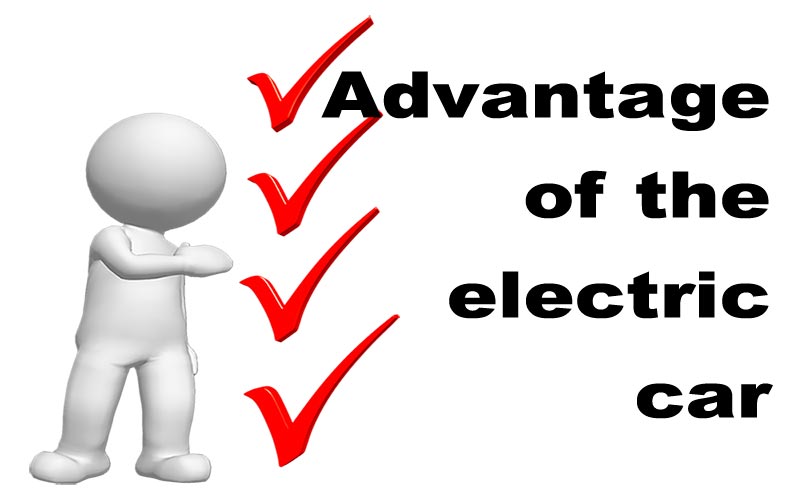
* Non-polluting
* Avoid global warming
* Reduces the use of fossil fuels
* Reduces energy imports
* Generates wealth and local employment
* Contributes to sustainable development
At the end of the 19th century
about 40% of the cars
they were electric
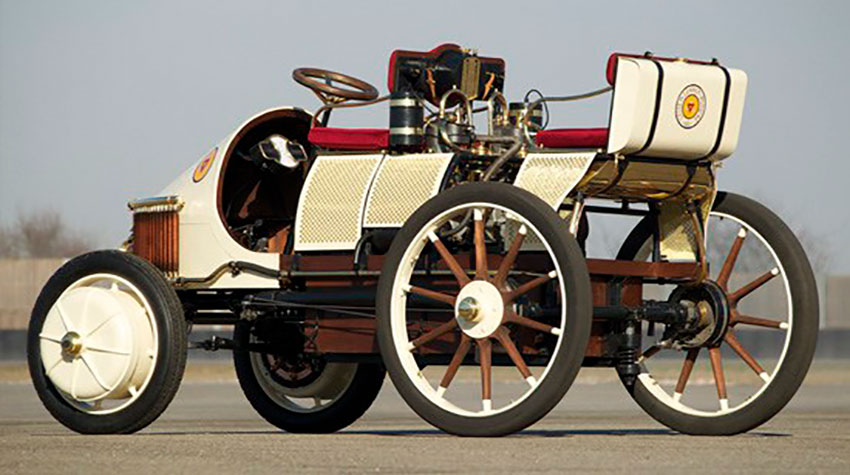
Lohner-Porsche – Source: FavCars.com
The electromobility
it also reaches
the heavy transport
Lithium in nature

Source: Baystreet.ca

Source: El inversor Energetico & Minero

Source: Windpower Monthly
Lithium in South America

Source: El inversor energético y minero
Lithium in China

Source: Info Mercedes
The Salt Lake of Chaerhan in China is one of the largest lithium reserves in the world.
Graphene. Is the material of future batteries?

Source: Kippel01.com
The truth about graphene – what’s the hold up?
The short history of GM’s EV-1
The EV-1 of General Motors was the first
modern electric car, but its life was short.
It was manufactured, collected and
destroyed between 1996 – 2004,
but his legacy reaches our days
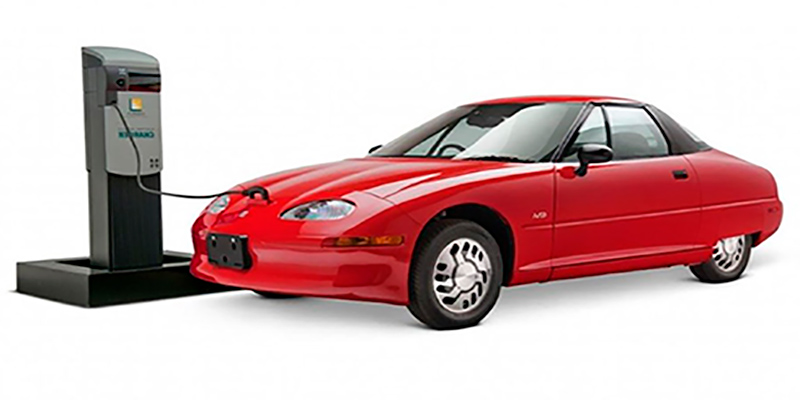
Source: Flickr
AC Propulsion Inc – and its silent revolution
Tom Gage, CEO of AC Propulsion
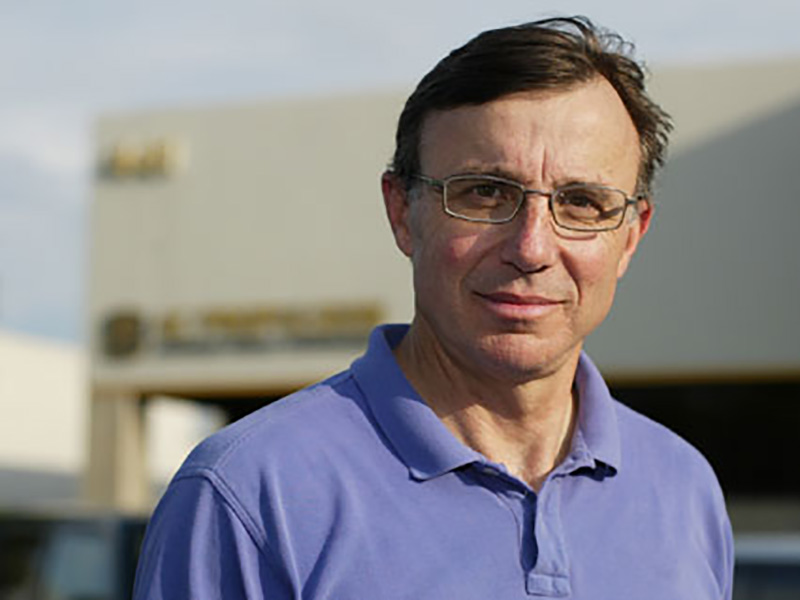
Source: EV Grid
Since its foundation, AC Propulsion, a company created by Alan Coccioni and Wally Rippel, California, 1992, has positioned until today as the world leader in current-based alternative transmission systems for electric vehicles. He developed and built the regulator for GM, which served as the basis for the EV-1.
When this program was suspended Tom Gage, president of AC Propulsion, suggested that some employees continue with their developments. That’s how Elon Musk, JB Straubel and Martin Eberhard founded Tesla Motors, pioneer of the modern electric car.
Tesla Motors emerged from the ashes of the EV1
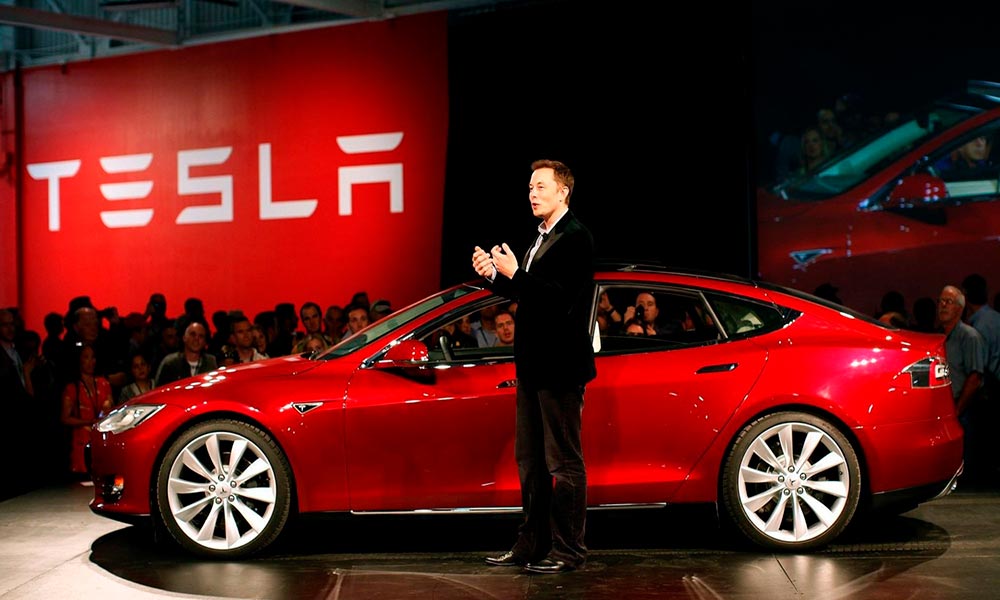
Source: uk.businessinsider.com
Elon Musk, presenting the Tesla S
Tesla, a company born to fight global warming

Source: Engadget
Elon Musk was born in Pretoria, South Africa, 1971. Co-founder of Tesla, also of PayPal, SpaceX, SolarCity, The Boring Company, among others.
Musk says that his vision revolves around changing the planet dramatically.
The company had the merit of getting people’s attention for the first time to the electric car and getting it to believe
Tesla Motors was created in 2003, based in Silicon Valley, California. It was imposed as a mission to accelerate the transition to sustainable transport, combat global warming and deaths from smog caused by motor transport. In 2008 he built the Roadster, a fully electric sports car, the first mass produced car that uses lithium-ion batteries with a range of more than 200 miles (322 km) per charge. The base model accelerates from 0 to 60 miles per hour (97 km / h) in 3.9 seconds. With these features Tesla achieved its goal and caused a great impact on the public. The company had the merit of getting people’s attention for the first time to the electric car and getting it to believe in the possibility of its success.
Renault, Nissan and Mitsubishi, a very successful alliance
Renault, Nissan and Mitsubishi, through an unprecedented and bold operation became strategic partners in 1999. The Alliance controls ten major brands, including: Renault, Nissan, Mitsubishi and Lada. Sells more than 10% of the total cars in the world. As of December 2016, it is the world leader in plug-in cars, with sales of almost 425,000 pure electric vehicles between 2010 and 2017. The Nissan Leaf is the best-selling vehicle in the world, with more than 300,000 units delivered from 2010 to September 2017. Europe, in 2016, the first place was fought by Renault Zoe and the proper Nissan Leaf.
Nissan Leaf 2018
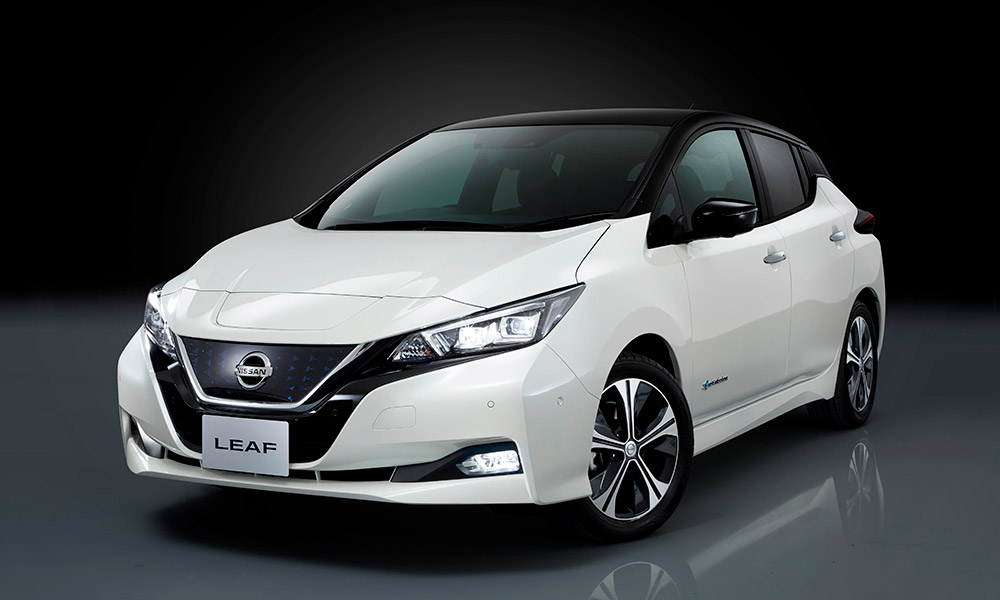
Source: 24.siyathafm.lk
In Europe, in 2016, the first
place was disputed by
Renault Zoe and the Nissan Leaf
Renault Zoe
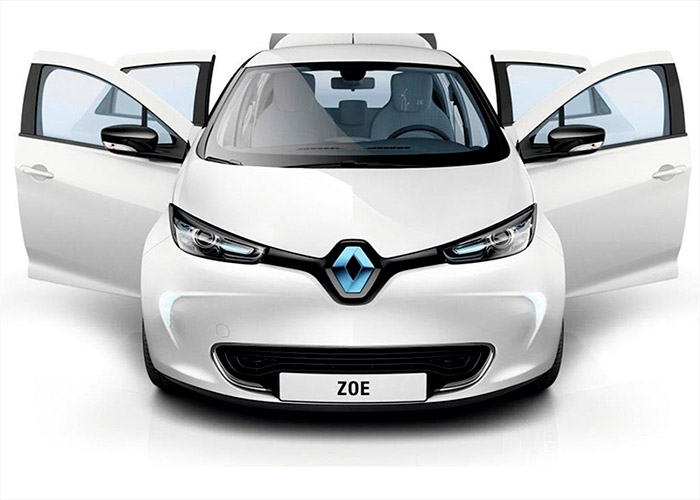
Source: Motorpasión
Sales of electric vehicles in Europe
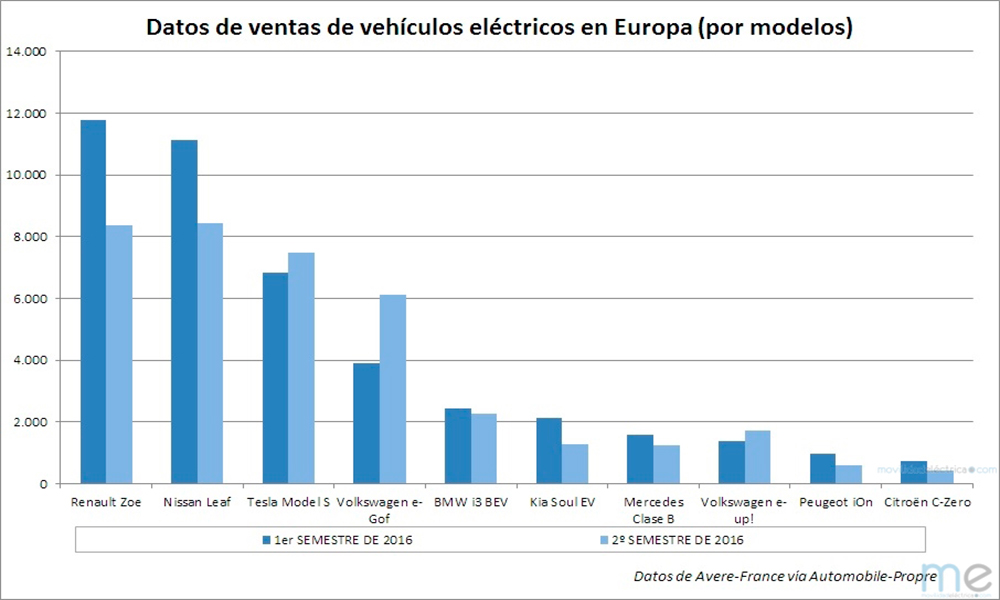
Source: Avere-France
Gasoline cars have an expiration date

Source: magyarok.ie
Norway will ban of electric cars circulation in 2025 –
France in 2040 and the UN
foresees 2050 Worldwide
Timeline for the future of the electric car
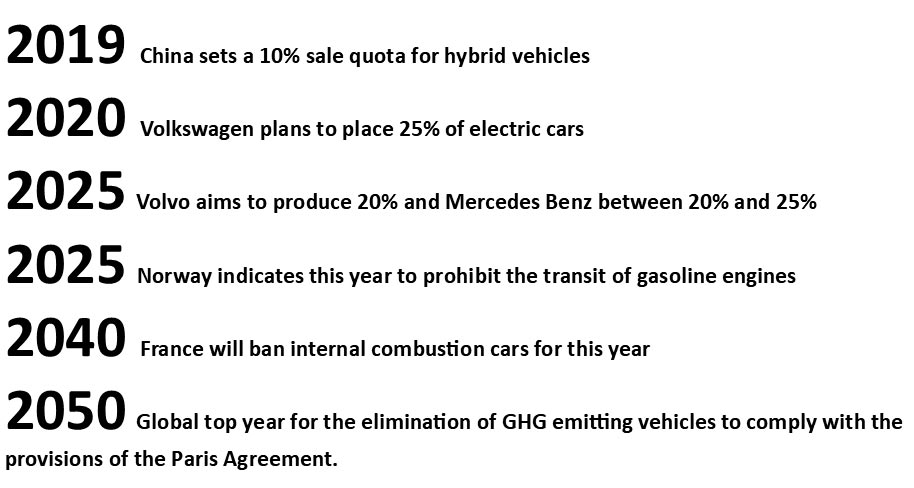
China accelerates electromobility
China announced that it will build recharging points for five million electric cars by 2020
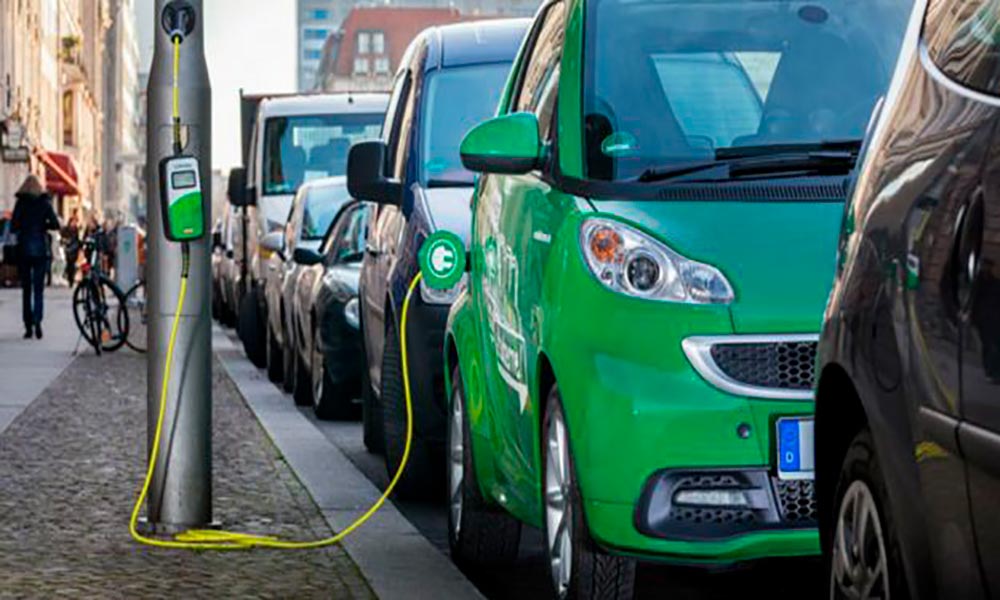
Source: Crónica Digital
Keith Bradsher: “China has become the biggest advocate of electric cars in the world. This is forcing automakers from Detroit to Yokohama and from Seoul to Stuttgart to pick up the pace of the transformation or risk falling behind in the global car market. Beijing has already requested that one in five cars sold in China run on alternative fuel by the year 2025. Last month, China issued new rules that would require the world’s automakers to sell more alternative energy cars in the local market. A Chinese official recently said that the country would eventually eliminate the internal combustion engine in new cars. ”
Keith Bradsher, NYT, Oct 9, 2017
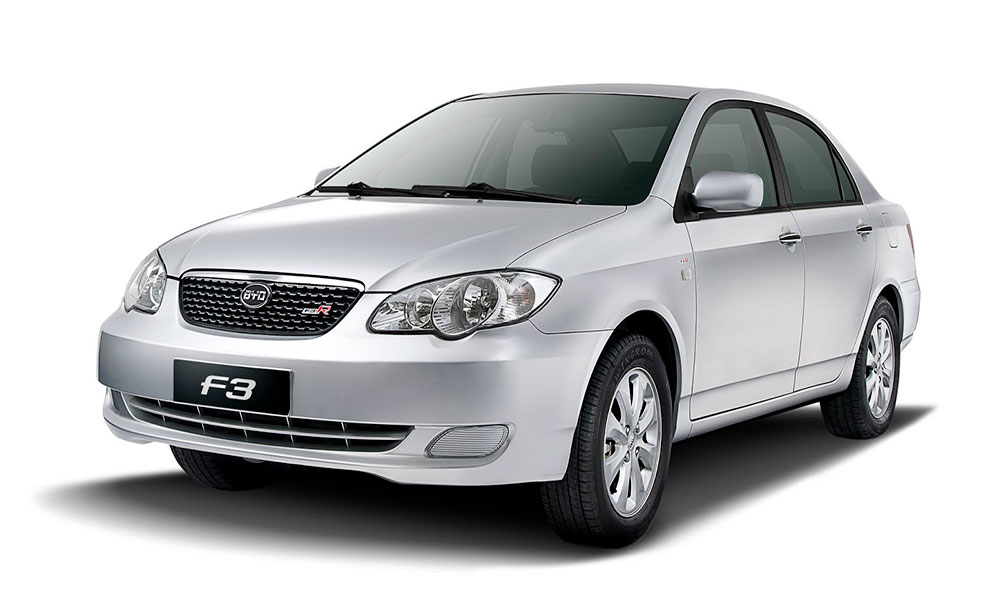
Source: CarPrices.ae
BYD F3
BYD the most popular car brand in China was created in 2003 after buying the company Qinchuan Vehicle Factory. Since then, a strategy has been established to make BYD Auto a global brand. The acronym BYD comes from “Build Your Dreams”.
“BYD has been accused of plagiarism in the design of some of its models, just as in its emblem”. Wikipedia
Referencial prices of some electric cars – 2018
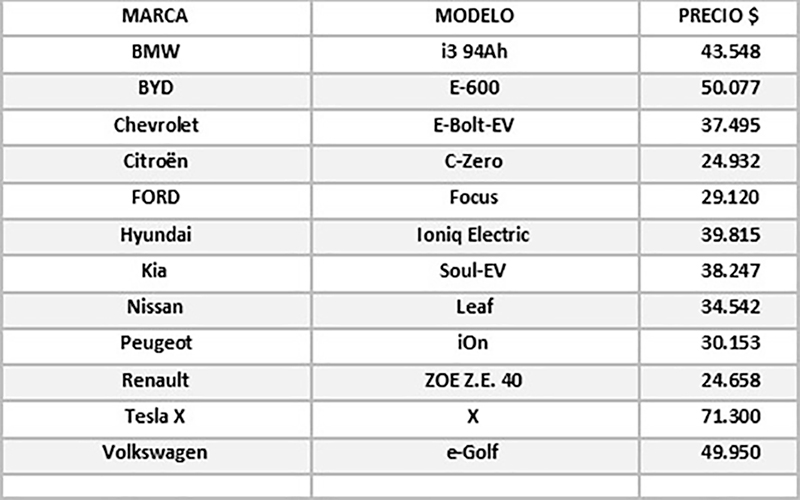
Source: SGK-PLANET
BMW i3
BYD – E-6
Chevrolet-Bolt-EV
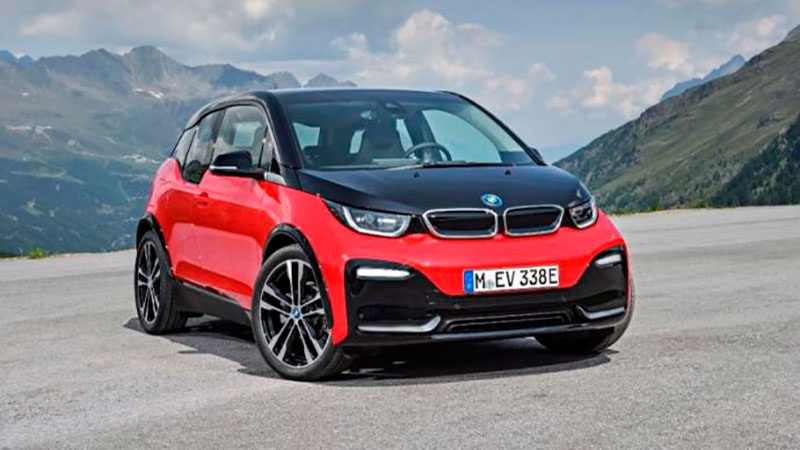
Source: Autofacil.es
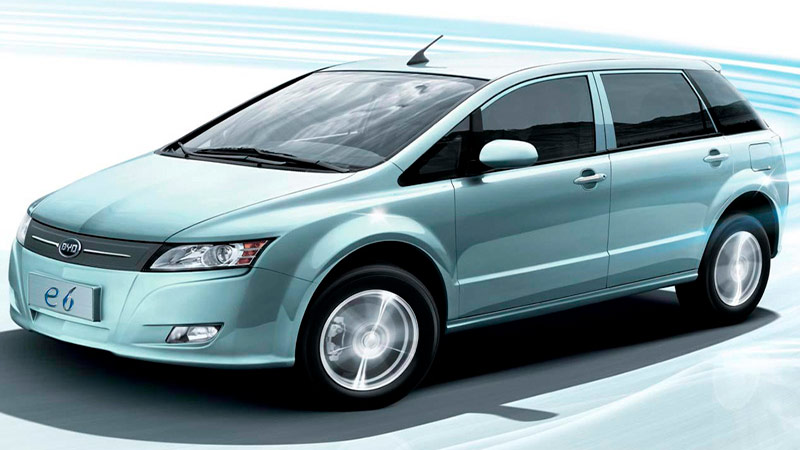
Source: CarPrices.ae
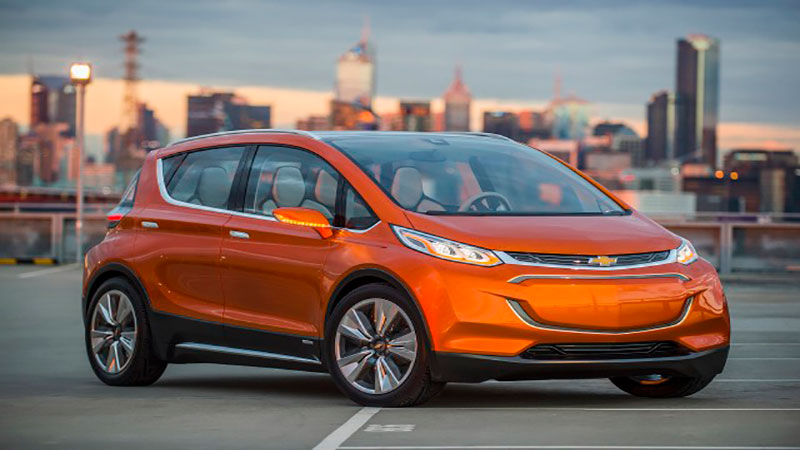
Source: greencarreports.com
Citroen C-Zero
Ford Focus Electric
Hyundai Ioniw Eléctric

Source: autoevolution.com
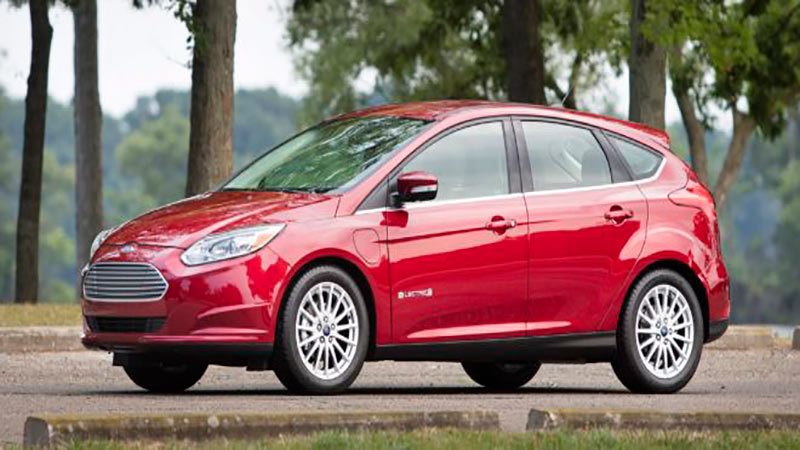
Source: Ford New Models 2018
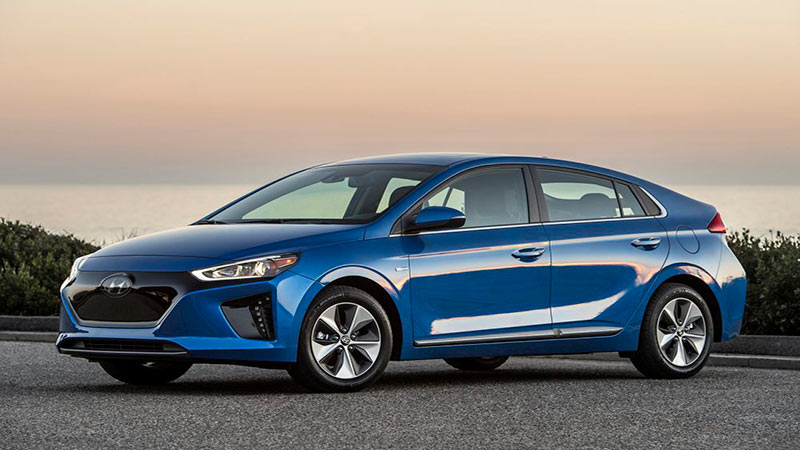
Source: autoverdecr.com
Kia Soul EV
Nissan Leaf
Peugeot iOn

Source: Mitula Autos
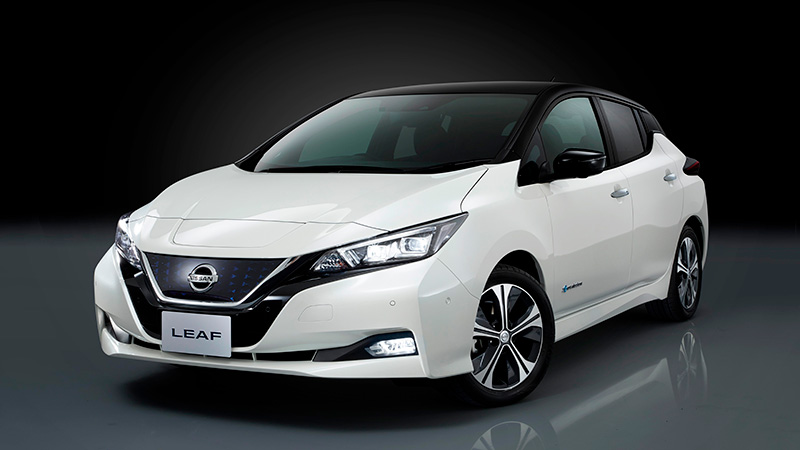
Source: 24.siyathafm.lk
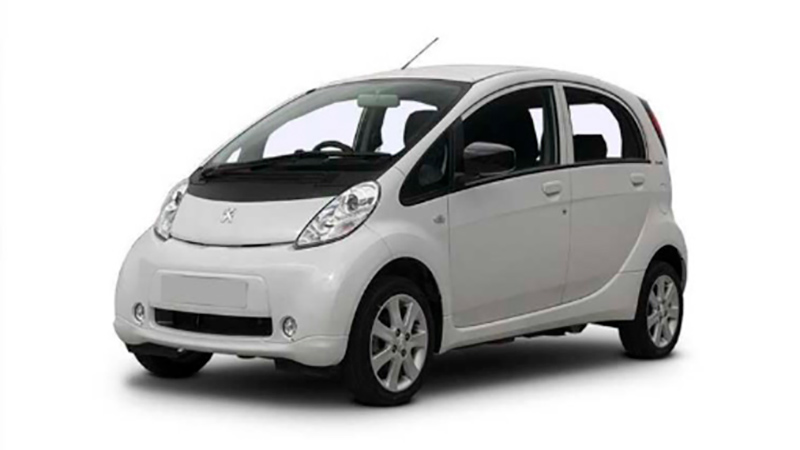
Source: OSV Ltd
Renault ZOE Z.E. 40
Tesla X
Volkswagen e-Golf
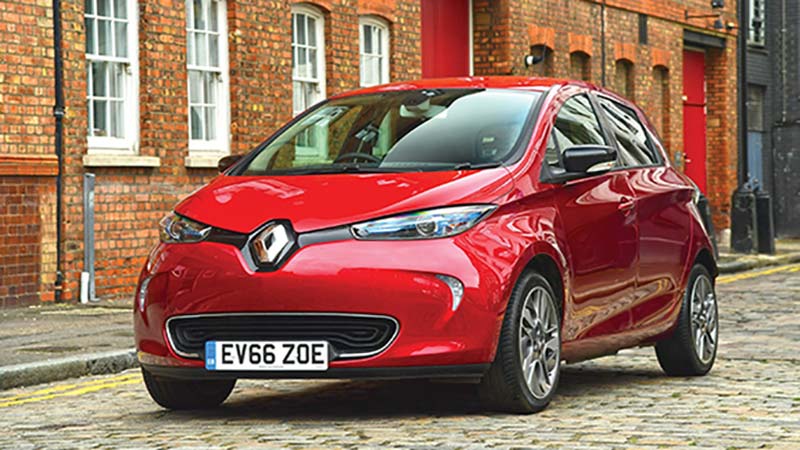
Source: The Engineer
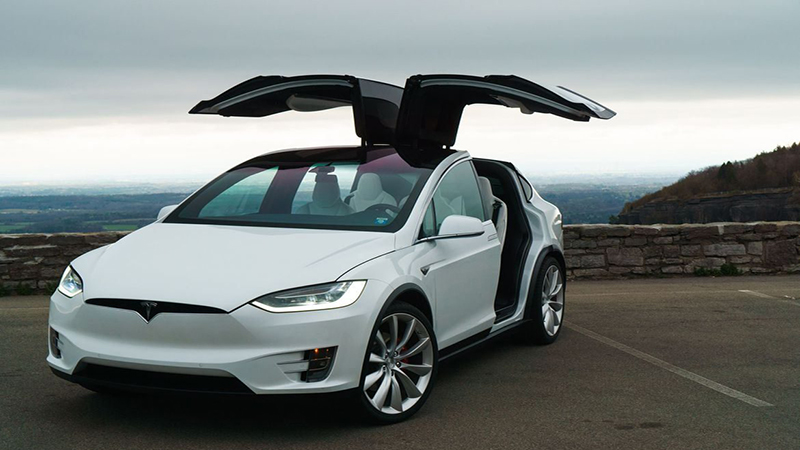
Source: neoauto.com
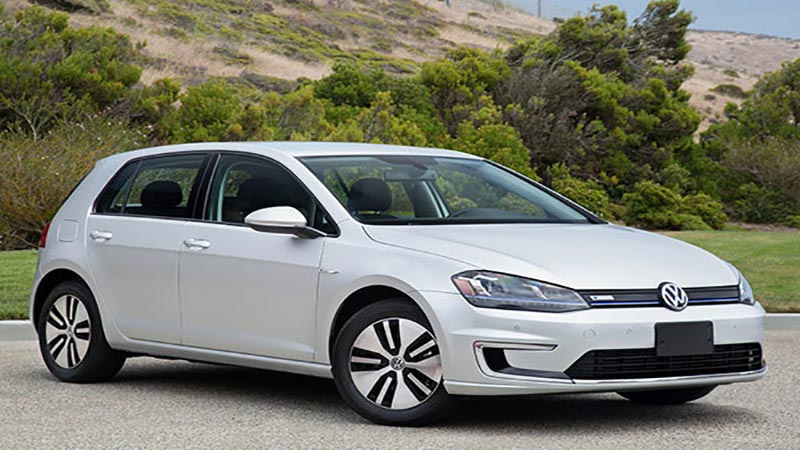
Source: newcartestdrive.com
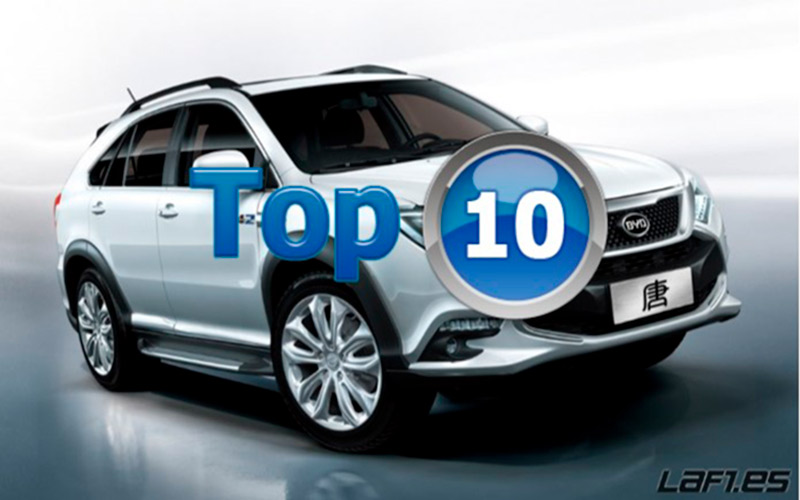
* For 2016 the Nissan Leaf was the best selling car in the world. The 2nd place corresponded to the Tesla-S and the 3rd to BYD. In one of the following graphics you can see the 10 best-selling models.
* In the other are the 10 largest manufacturers of electric cars. The 1st corresponds to China, the 2nd to the United States, followed closely by South Korea.
The electric car in figures
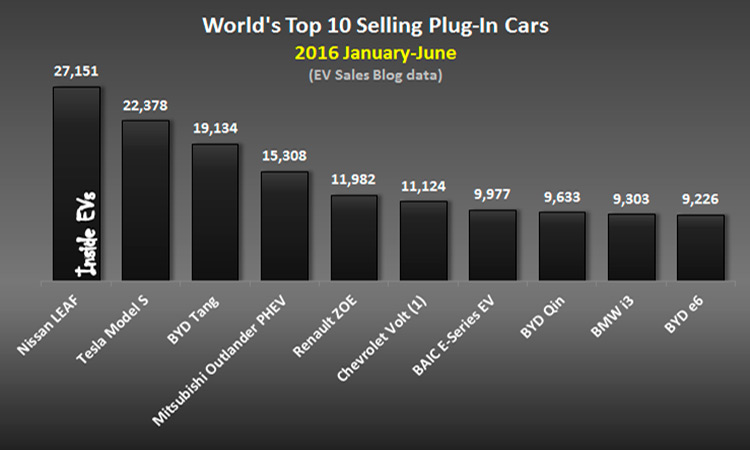
Source: Inside EVs
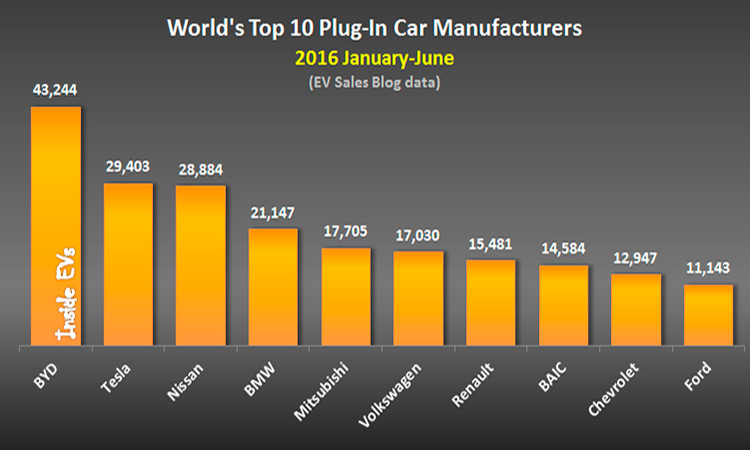
Source: Inside EVs
The autonomy of an electric vehicle
Autonomy is a fundamental factor to consider when deciding the migration to the new system. With the lithium batteries it is possible to reach autonomy close to 200 km. With some technologies that have begun to be applied this can reach 300 km and up to 500 km. Batteries with more than 400 km of autonomy are expensive and the recharge time can reach about nine hours at home, which can be reduced to two hours at public recharging points. To avoid the waiting time, in some places they exchange the discharged batteries for those charged in advance.
More and more public recharging points will be seen in the world
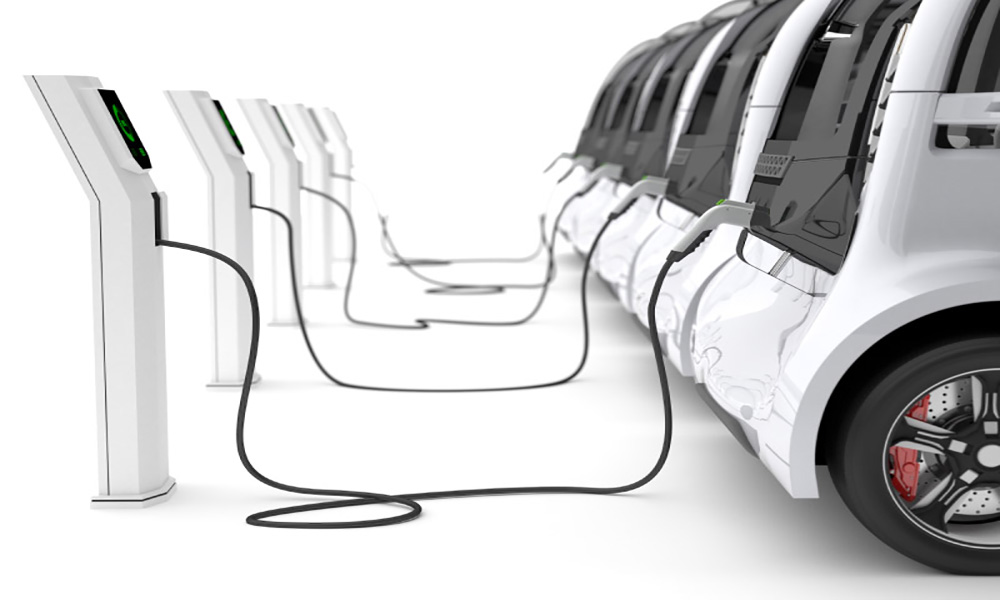
Source: autoevolution.com
Electromobility in the future
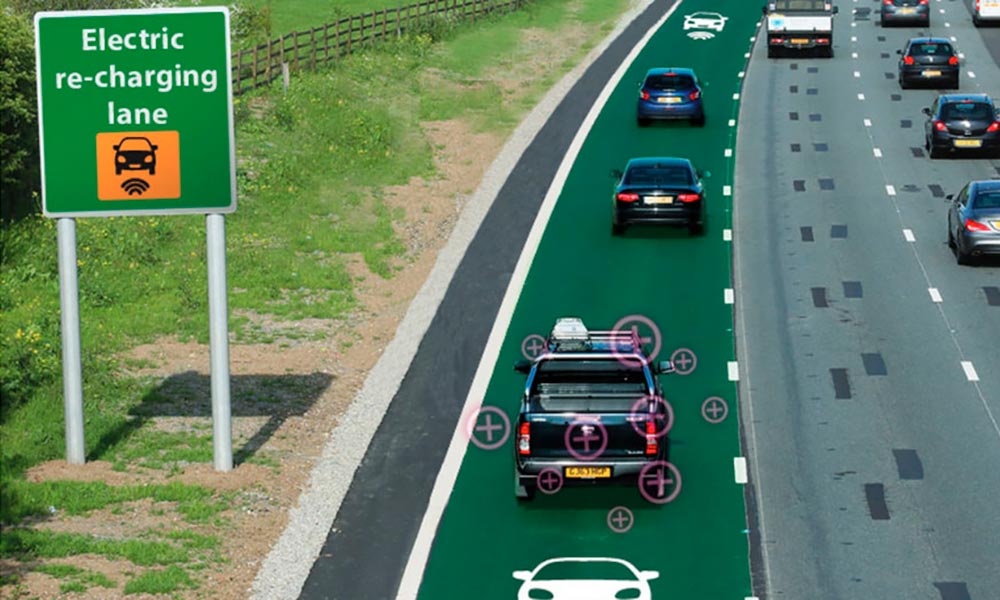
Source: Made in Marseille
“The United Kingdom has begun performing the first tests to recharge electric vehicle batteries while driving on roads. A spokesman for the state agency Highways of England, has assured that “the tests are the first of their kind and will verify the way in which the technology would work safely and effectively on the highways and main roads of the country, to allow drivers of vehicles with ultra-low emissions to travel long distances without stopping to recharge the car’s battery “. abc .es
And what about this?
